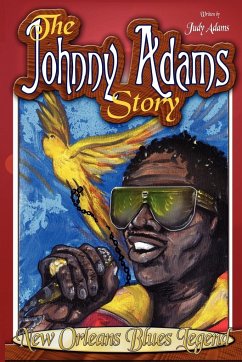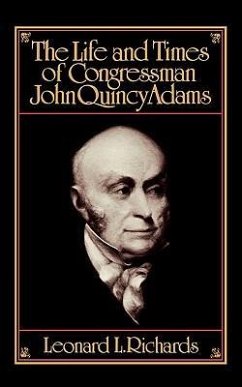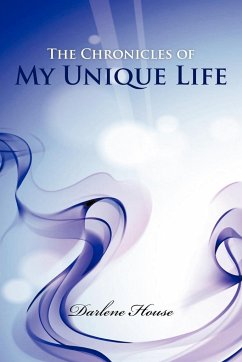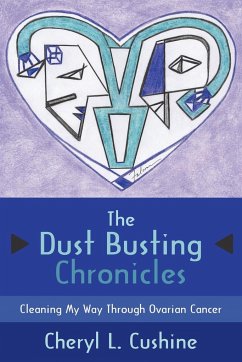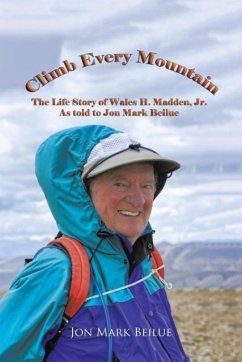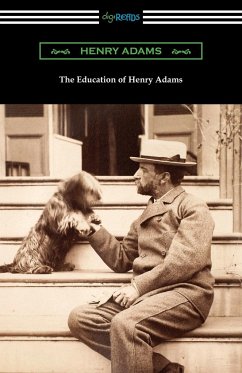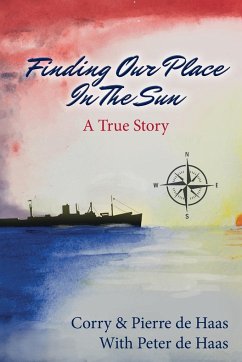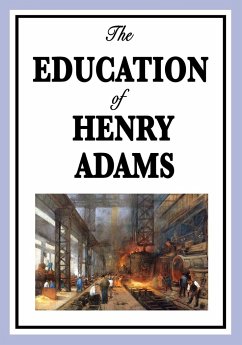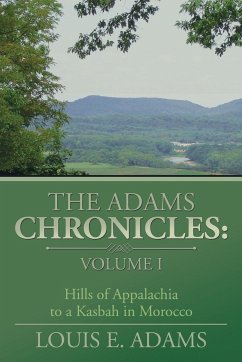
The Adams Chronicles
Volume I: Hills of Appalachia to a Kasbah in Morocco
Versandkostenfrei!
Versandfertig in 1-2 Wochen
21,99 €
inkl. MwSt.

PAYBACK Punkte
11 °P sammeln!
This story begins with a farm boy who grew up in the foothills of Appalachia near Chillicothe, Ohio during the Great Depression and World War II. After graduation from high school he served in the U.S. Navy with his two brothers. Naval service during the 1960’s and the Cold War years, took him and his family to Morocco--- a country of many contrasts and at a time of new challenges. Culture shock was part of this new adventure. His medical duties were varied and included working with the Moroccan Ministry of Health conducting epidemiological studies, enteric diseases monitoring, and the train...
This story begins with a farm boy who grew up in the foothills of Appalachia near Chillicothe, Ohio during the Great Depression and World War II. After graduation from high school he served in the U.S. Navy with his two brothers. Naval service during the 1960’s and the Cold War years, took him and his family to Morocco--- a country of many contrasts and at a time of new challenges. Culture shock was part of this new adventure. His medical duties were varied and included working with the Moroccan Ministry of Health conducting epidemiological studies, enteric diseases monitoring, and the training of Peace Corps Volunteers (PCVs) as laboratory technicians. As will be presented in detail in Volume Two, the author returned to Morocco as the Director of two groups of 50-plus PCV Lab Techs who were stationed in hospitals and clinics throughout Morocco to fill a void left by the exodus of French health care workers after Moroccan Independence in 1956. The overall success of the program was marginal due to many factors: limited number of well-trained medical technologists, demands for additional lab test overwhelmed AB generalists, lab bench work too mundane, work lacked opulence, provided limited self-gratification, and impeded cross-culture exchange and social interaction, loyalty to work ethics was limited, and social revolution occurring in the 1960’s accentuated the character flaws and immaturity of some PCVs. Cities like Tangier, Tetouan, and Marrakesh in the 1960’s provided adventure, deception, intrigue, mystery, and high-octane thrills that attracted expatriates, writers, poets, exotic travelers, and PCVs who got caught up in the drug scene. Later, the author returned to college, accepted a faculty appointment at the University of Cincinnati, where he taught and conducted medical research for 28 years.



